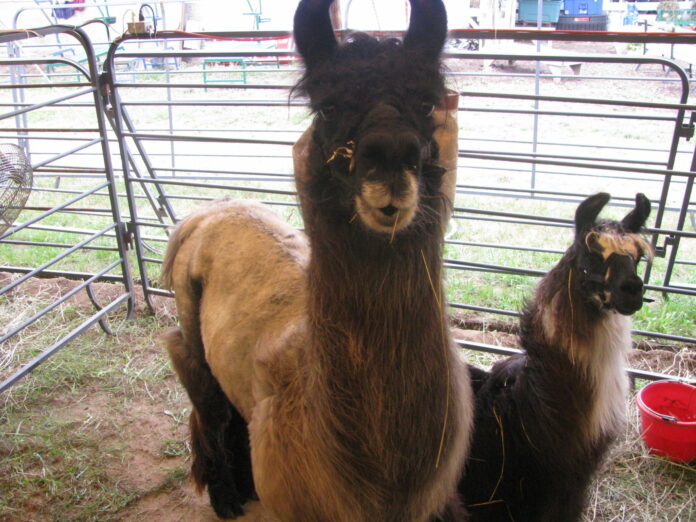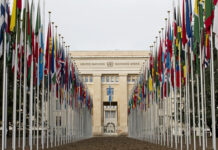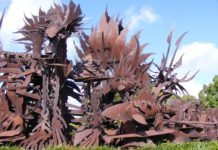Photo credit: DiasporaEngager (www.DiasporaEngager.com).
- South African Johann Rupert has overtaken Dangote, becoming Africa’s richest person in a move that highlights the tectonic shifts sweeping across Nigeria and South Africa’s economies.
- While Rupert’s wealth soared, Dangote’s fortune took a gut punch, contracting by $1.7Bn this year to $13.4Bn.
- Richemont, with its portfolio of luxury brands, operates in a global market that is less vulnerable to the economic woes of any single country unlike the Dangote Group.
The crown for Africa’s richest man has left Nigerian industrialist Aliko Dangote to South African luxury goods icon Johann Rupert. For over ten years, Aliko Dangote seemed unassailable, with his name often being synonymous with wealth, increasingly representing a new breed of modern-era industrialists, and power in Africa.
In the latest disclosures according to the Bloomberg Billionaires Index, however, South African Johann Rupert has overtaken Dangote, becoming Africa’s richest person. This change underscores some of the tectonic shifts sweeping across Africa’s biggest economies, Nigeria and South Africa, where these investors have made their huge fortunes.
Africa’s richest: The rise and rise of luxury goods trader Johann Rupert
Johann Rupert’s ascent to the top is anchored in vast investments in the luxury goods empire that he controls through Richemont, one of the world’s largest luxury outfits. Here, brands such as Cartier, Montblanc, and Vacheron Constantin are under his purview, and their global appeal has strongly bolstered his fortune. In the past year alone, Rupert’s net worth reportedly increased by a whooping $1.9 billion, hitting $14.3 billion overall and placing him 147th in the priviledged list of world’s richest.
The story of Rupert’s rise is one of legacy, strategy, and resilience. Born into a family with a deep business acumen, Rupert inherited his father’s business, Rembrandt Group, and transformed it from a tobacco-centric company into a global luxury powerhouse.
His decision to pivot towards luxury goods has proven prescient, especially in an era where the increasing demand for high-end products continues to expand, even in uncertain economic times in Africa.
Economic turmoil in Nigeria costs Dangote dearly
While Rupert’s wealth soared, Dangote’s fortune took a gut punch, steadily contracting by $1.7 billion this year alone to $13.4 billion, disclosures show. This drop was attributable to the unravelling tough economic conditions in Nigeria, Africa’s biggest economy and where Dangote’s business empire is deeply rooted.
For instance, since the election of President Bola Tinubu in March 2023, Nigeria has undergone a series of economic reforms aimed at stimulating long-term growth but at the cost of short-term stability.
One of the most impactful changes has been the removal of fuel subsidies, a move that has led to skyrocketing inflation, now over 30 per cent according to government statistics. For Dangote, whose wealth is largely tied to the performance of his businesses, including a newly set up oil refinery within Nigeria, this trend of events has been a major blow.
At the same time, the devaluation of the naira, Nigeria’s currency, has further compounded Dangote’s challenges. As the naira plummeted in value, so too did the worth of Dangote’s assets, which are primarily denominated in naira. Despite his efforts to diversify, including the recent opening of an oil refinery in Lagos, Dangote’s fortunes remain heavily tied to Nigeria’s economic health.
Richemont vs. The Dangote Group: A tale of two strategies
The contrasting fortunes of Rupert and Dangote can be traced back to the nature of their respective businesses. Richemont, with its portfolio of luxury brands, operates in a global market that is less vulnerable to the economic fluctuations of any single country.
Luxury goods, particularly those with strong brand recognition such as Cartier, tend to maintain demand even in times of economic downturn. This global reach has allowed Rupert to weather economic storms that have battered others, including Dangote.
On the other hand, the Dangote Group is deeply entrenched in Nigeria’s economy, with its major interests in cement, sugar, and now oil refining. While these industries are essential and lucrative, they are also more susceptible to the prevailing local economic conditions.
This means that the ongoing volatility of Nigeria’s economy, coupled with the challenges of operating in a market with frequent currency devaluations, persistent supply chain disruptions, and political instability, has taken a huge toll on Dangote’s wealth.
Read also: Raid on Dangote’s office sends chills to businesses and investors in Nigeria
The impact of politics and economic policy
The interplay between politics and business is another crucial factor in the shifting fortunes of Africa’s wealthiest individuals. In South Africa, where Rupert’s businesses are based, the luxury goods market has been relatively stable. Moreover, Rupert’s business acumen and strategic investments in global markets have insulated his wealth from domestic economic challenges.
In contrast, Nigeria’s economy, including Dangote’s own businesses, has been hit by turbulence in the past one year. The reforms introduced by President Tinubu, while potentially beneficial in the long run, have created an environment of uncertainty in the short term.
For example, the removal of fuel subsidies, while intended to lowe the government’s spending as recommended by the International Monetary Fund (IMF), has led to higher costs of living and doing business in the country. This, in turn, has affected companies such as Dangote’s, which rely heavily on fuel and other resources for their operations.
Furthermore, the sharp decline in the value of the naira has not only eroded the purchasing power of ordinary Nigerians but also significantly diminished the value of assets held by the country’s wealthiest individuals, including Dangote.
This devaluation has made it more difficult for Dangote to maintain his previous levels of wealth on the global stage, where currency strength plays a crucial role in determining net worth.
Global Markets vs. Local Economies
Rupert’s rise and Dangote’s decline also highlight the importance of diversification and global market exposure in maintaining and growing wealth. Rupert’s decision to focus on luxury goods, an industry segment with a global customer base, has paid off handsomely. The global nature of Richemont’s business means that it is not overly reliant on any single economy, allowing it to thrive even when individual markets falter.
Conversely, Dangote’s businesses, while highly successful, are concentrated in sectors that are heavily influenced by Nigeria’s economic conditions. The cement industry, for instance, is closely tied to the local construction sector, which can be severely impacted by economic slowdowns.
Similarly, the success of Dangote’s oil refinery is dependent on the stability of Nigeria’s energy market, which is often affected by global oil prices and domestic policy decisions.
The title of Africa’s richest person is likely to continue shifting hands as market conditions fluctuate and businesses navigate complex challenges. While Rupert currently holds the crown, the dynamic nature of global wealth means that this could change again in the coming years.
For Dangote, the path to regaining his position as Africa’s richest man may lie in further diversification and expanding his business interests beyond Nigeria. By reducing his reliance on the local economy and increasing his exposure to global markets, Dangote could mitigate the risks associated with Nigeria’s economic volatility.
On the other hand, Rupert’s continued success will likely depend on his ability to maintain the appeal of his luxury brands in an ever-evolving global market. As consumer preferences shift and new challenges emerge, staying at the top will require constant innovation and strategic foresight.
The story of how Johann Rupert overtook Aliko Dangote as Africa’s richest man is more than just a tale of numbers. It is a reflection of the broader economic, political, and market forces that shape the fortunes of the world’s wealthiest individuals. As Africa’s billionaires navigate these challenges, their successes and setbacks will continue to be a barometer of the continent’s economic health and its place in the global economy.
Source of original article: Industry and Trade – The Exchange (theexchange.africa).
The content of this article does not necessarily reflect the views or opinion of Global Diaspora News (www.GlobalDiasporaNews.com).
To submit your press release: (https://www.GlobalDiasporaNews.com/pr).
To advertise on Global Diaspora News: (www.GlobalDiasporaNews.com/ads).
Sign up to Global Diaspora News newsletter (https://www.GlobalDiasporaNews.com/newsletter/) to start receiving updates and opportunities directly in your email inbox for free.





























